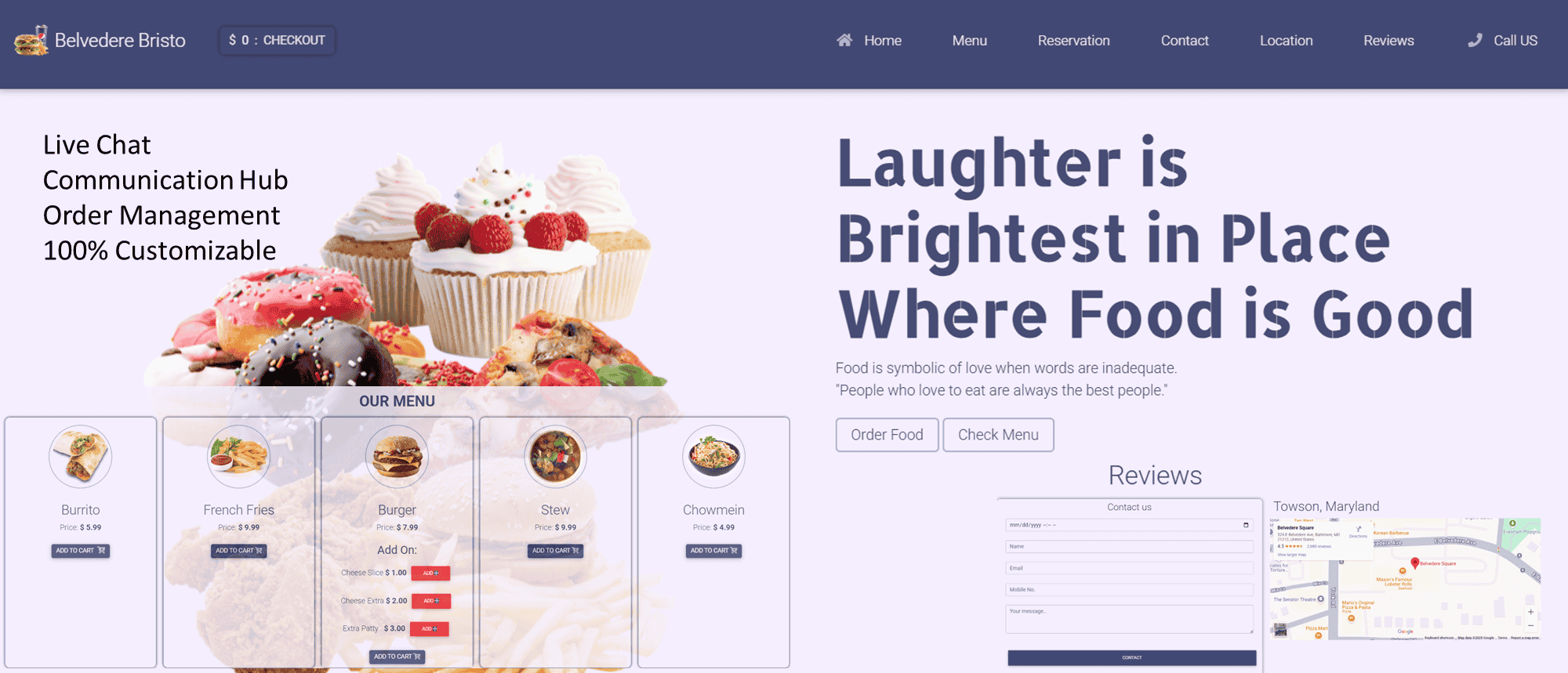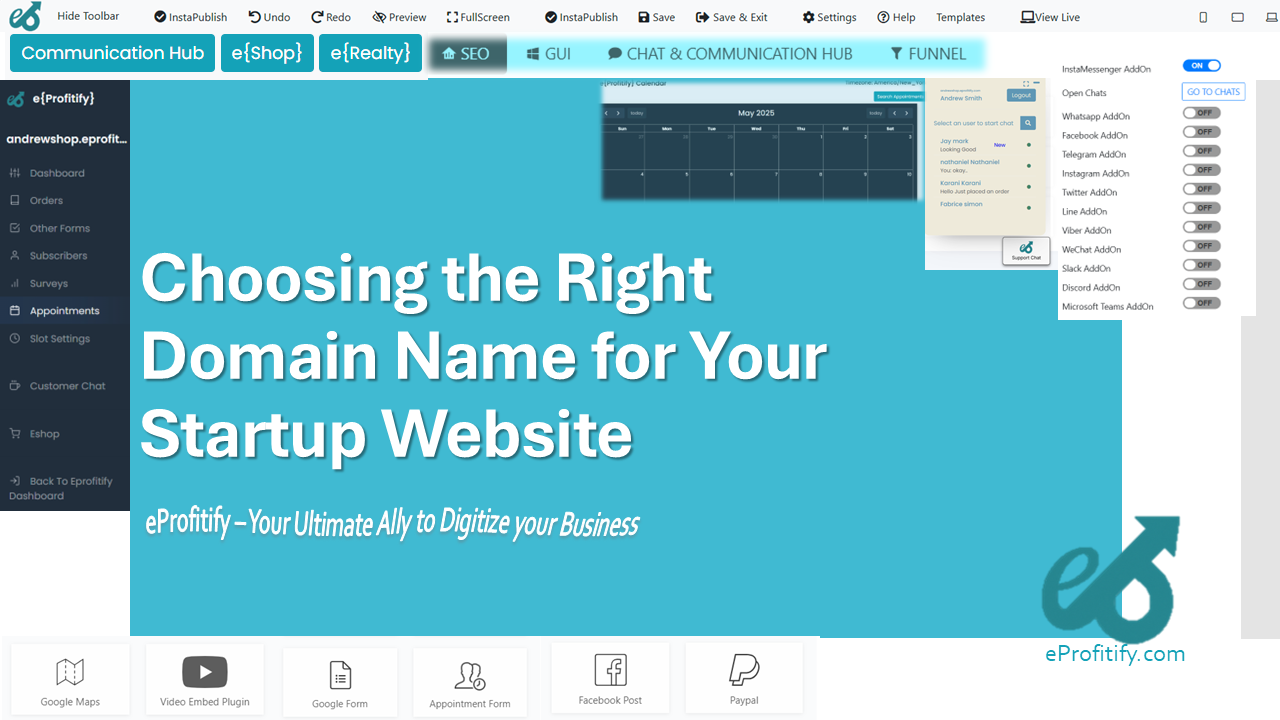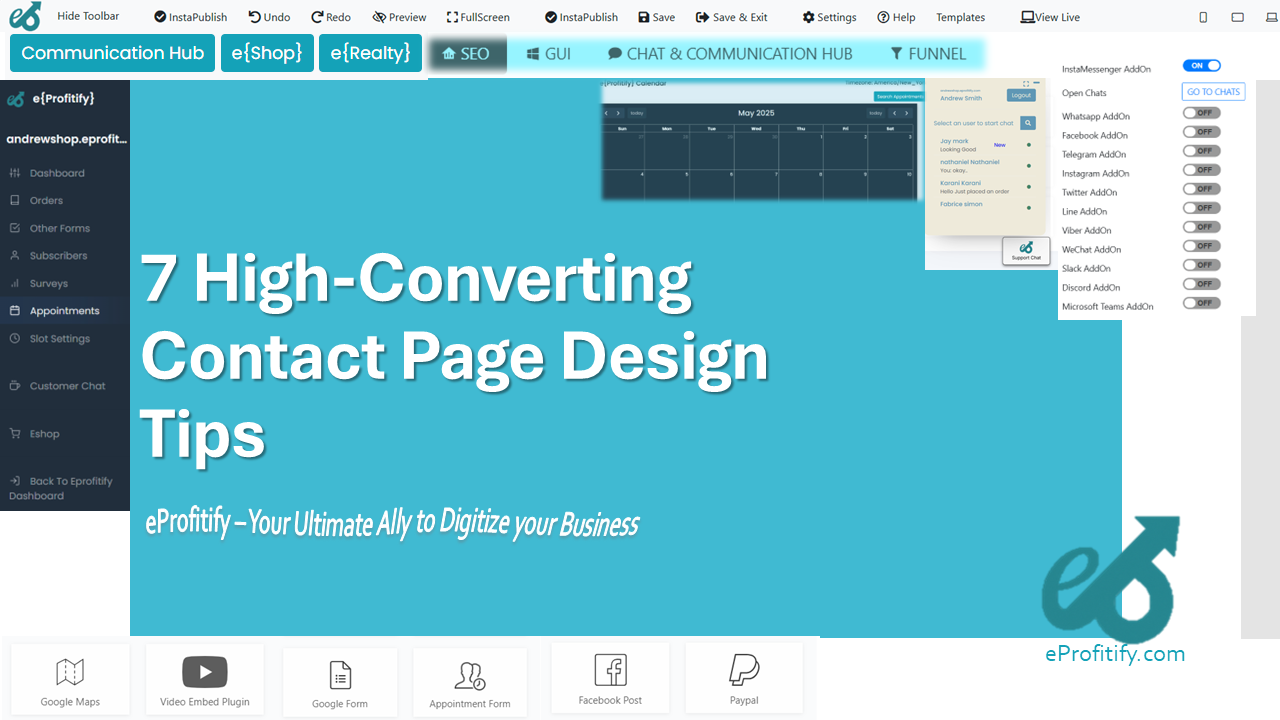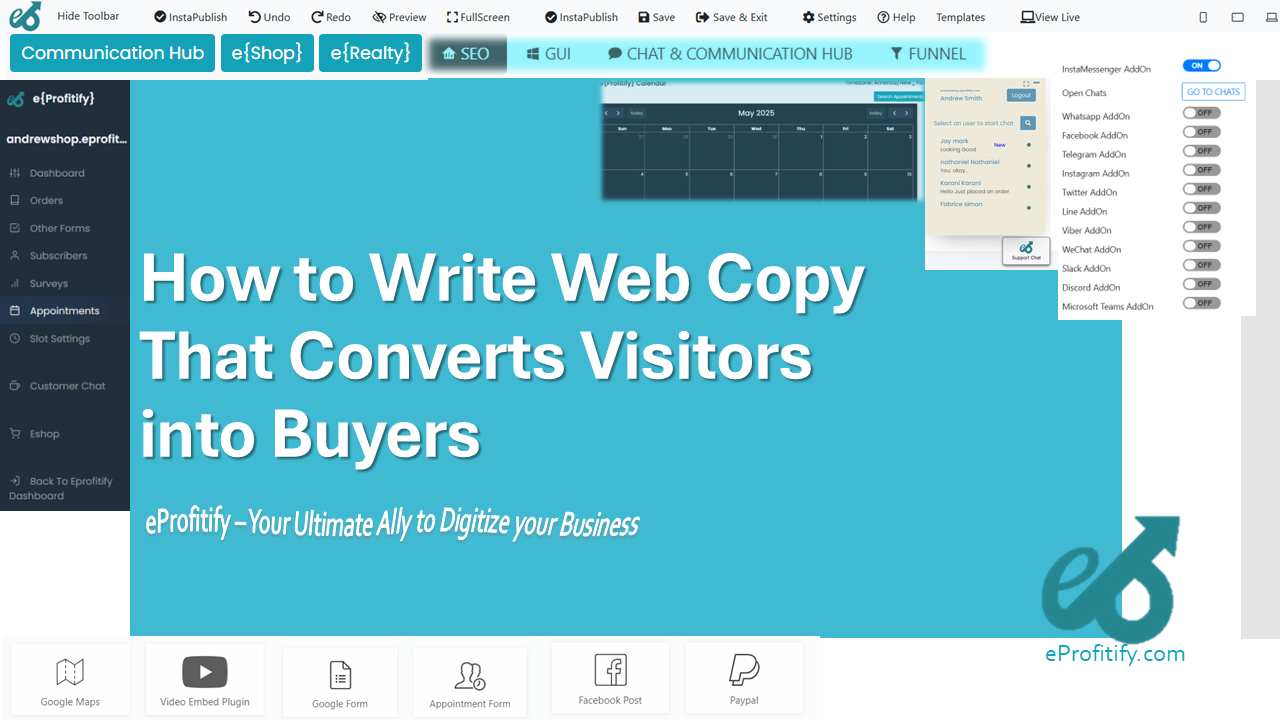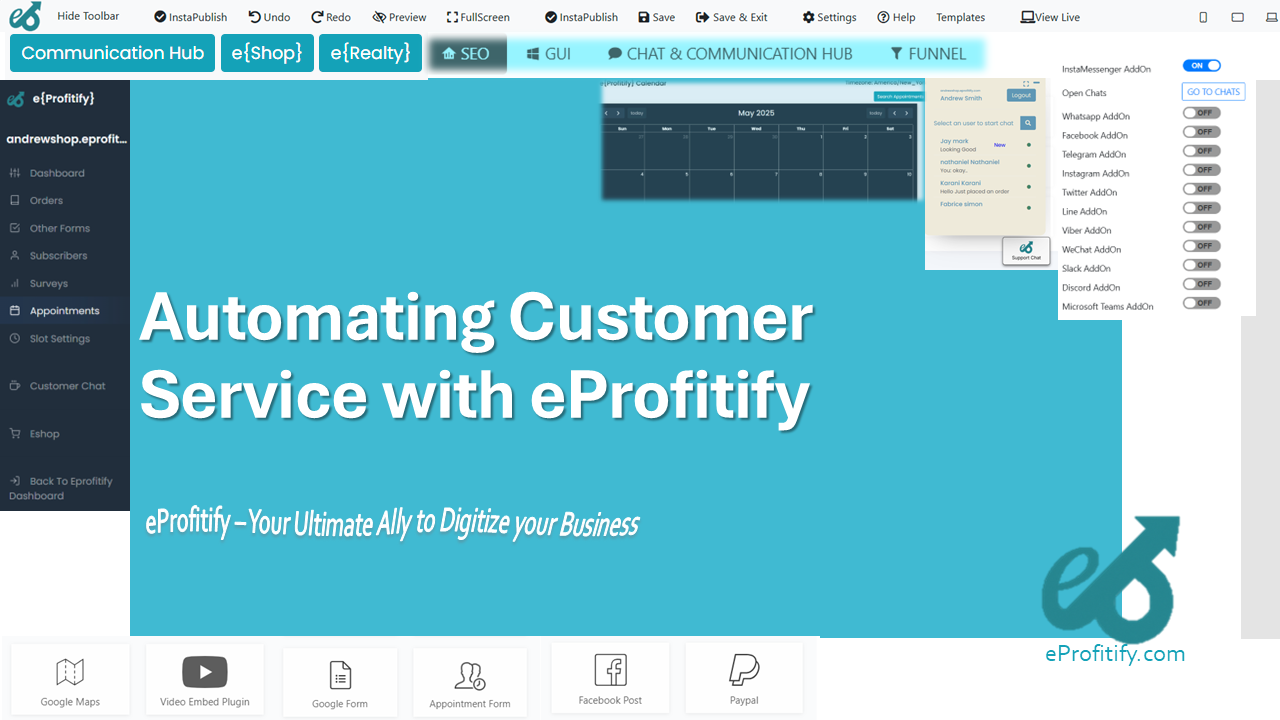Using AI to Personalize Your Ecommerce Store
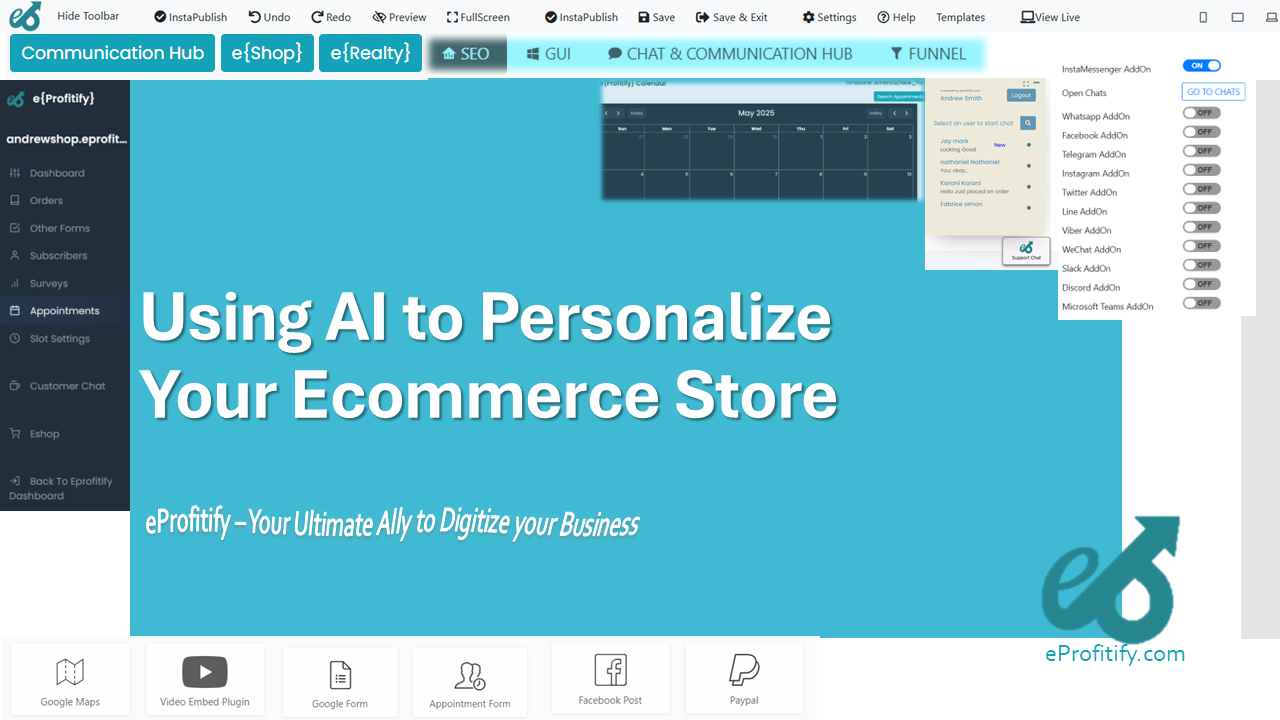
Using AI to Personalize Your Ecommerce Store
In today’s competitive ecommerce landscape, personalization is no longer optional—it’s a necessity. Shoppers now expect tailored experiences that reflect their preferences, behaviors, and purchasing history. According to a 2023 McKinsey report, 71% of consumers demand personalized interactions, and 76% feel frustrated when brands fail to deliver them. Artificial Intelligence (AI) has emerged as the cornerstone of meeting these expectations, offering tools to analyze data, predict trends, and automate personalized engagements at scale. Platforms like eProfitify, a leading website publishing and management solution, integrate advanced AI features—such as instant messaging, appointment management, CRM, and ecommerce tools—to help businesses streamline personalization efforts. Below, we explore how AI transforms ecommerce personalization and why eProfitify is vital for modern retailers.
The Role of AI in Ecommerce Personalization
AI algorithms process vast amounts of customer data—from browsing patterns to purchase history—to generate actionable insights. For example, Segment’s 2023 survey found that companies using AI-driven personalization see a 20% increase in customer satisfaction and a 15% boost in revenue. By leveraging machine learning, natural language processing (NLP), and predictive analytics, AI enables businesses to:
- Recommend products dynamically.
- Adjust pricing based on demand.
- Automate customer segmentation.
- Provide 24/7 support via chatbots.
- Enhance visual and voice search capabilities.
Let’s break down these applications.
1. AI-Powered Product Recommendations
Product recommendations account for 35% of Amazon’s annual revenue, showcasing their revenue-driving potential. AI systems analyze user behavior (e.g., clicks, cart additions, wishlists) to suggest items aligned with individual preferences. For example, if a customer buys running shoes, AI might recommend moisture-wicking socks or fitness trackers.
Tools like eProfitify integrate recommendation engines that use collaborative filtering (comparing users with similar tastes) and content-based filtering (matching product attributes to user preferences) to deliver hyper-relevant suggestions. This reduces decision fatigue for shoppers and increases average order value.
2. Dynamic Pricing Optimization
Dynamic pricing, powered by AI, allows businesses to adjust prices in real time based on market demand, competitor pricing, and inventory levels. A McKinsey study revealed that dynamic pricing can lead to a 5–25% revenue increase for retailers. For instance, airlines and ride-sharing apps use this strategy, but ecommerce brands are now adopting it for non-perishable goods.
eProfitify’s analytics tools help retailers implement dynamic pricing by monitoring trends and automating adjustments. Coupled with CRM data, businesses can also offer personalized discounts to loyal customers, further enhancing retention.
3. Customer Segmentation and Targeted Campaigns
Generic marketing campaigns are becoming obsolete. AI enables granular customer segmentation by clustering users based on demographics, behavior, or purchase history. SmarterHQ reports that 72% of consumers only engage with personalized messaging, and AI makes segmentation scalable.
For example, a cosmetics brand might use AI to identify a segment interested in sustainable products and send them targeted emails about new eco-friendly launches. eProfitify’s CRM tools simplify this process by consolidating customer data and automating campaign workflows.
4. AI Chatbots for Instant Support
Chatbots handle 68% of customer queries in ecommerce, according to Salesforce. AI-driven chatbots resolve issues instantly, recommend products, and even process returns. For instance, H&M’s chatbot on Kik asks users style preferences to curate outfits.
eProfitify’s instant messaging feature elevates this by integrating chatbots with human support. If a query is too complex, the system routes it to a live agent, ensuring seamless customer experiences. This hybrid approach saves time and builds trust.
5. Visual and Voice Search Enhancements
By 2024, 30% of ecommerce searches will be voice or image-based, per Gartner. AI tools like Google Lens allow shoppers to upload photos to find similar products, while voice assistants like Alexa enable hands-free shopping.
Platforms like eProfitify optimize product listings for visual and voice search by tagging images with metadata and using NLP to interpret voice commands. This makes stores more discoverable and accessible.
eProfitify: Your All-in-One AI-Powered Ecommerce Solution
While AI-driven personalization is powerful, its implementation requires robust infrastructure—this is where eProfitify shines. As a leading website publishing and management platform, eProfitify combines multiple tools to help businesses deliver tailored experiences:
- AI-Powered CRM: Track customer interactions and segment audiences effortlessly.
- Dynamic Product Recommendations: Serve relevant suggestions via machine learning.
- Instant Messaging & Chatbots: Resolve queries in real time.
- Appointment Management: Schedule bookings based on customer availability and preferences.
- Ecommerce Tools: Manage inventory, process payments, and optimize listings.
- Analytics Dashboard: Monitor performance metrics and adjust strategies on the fly.
For example, a boutique using eProfitify can automate appointment reminders, recommend matching accessories during checkout, and send personalized follow-up emails—all within a single platform.
The Bottom Line
AI personalization isn’t just a trend—it’s a proven strategy to boost conversions, loyalty, and revenue. With 80% of consumers more likely to purchase from brands offering personalized experiences (Epsilon), retailers must adopt AI tools to stay competitive. Platforms like eProfitify simplify this transition by bundling essential features into a user-friendly interface. From chatbots to CRM, its tools empower businesses to harness AI without technical complexity.
In a world where customers crave relevance, AI removes the guesswork. Start personalizing—your cart abandonment rates and customer lifetime value will thank you.
Word Count: 1,000

